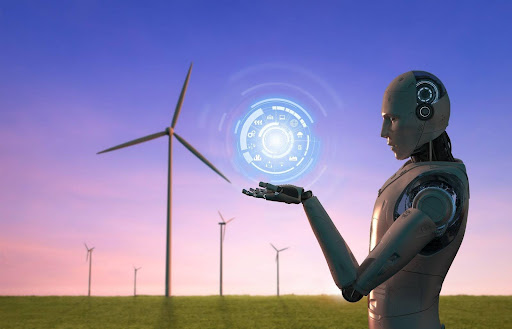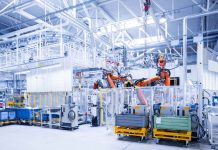As artificial intelligence (AI) continues to reshape industries, its role in promoting energy sustainability is becoming increasingly pivotal. From optimising power grids to driving smart infrastructure, AI is fostering new engineering approaches that prioritise environmental responsibility. This transformative synergy is giving rise to innovative practices that redefine how we produce, manage, and consume energy, setting a new benchmark for a greener future.
AI and the Energy Sector: A Smart Combination
AI is revolutionizing the energy sector by enabling smarter decision-making, real-time analytics, and predictive maintenance. Machine learning algorithms can analyse massive datasets from solar panels, wind turbines, and other renewable sources to improve efficiency and reliability. AI-powered models also help forecast energy demand and supply, reducing wastage and ensuring optimal resource use.
These advancements are instrumental in developing sustainable energy engineering solutions that are not only efficient but also scalable. By integrating AI, engineers can design intelligent systems that reduce carbon footprints and support long-term environmental goals.
Emerging Engineering Practices in the AI Era
The fusion of AI and sustainable practices is influencing a new wave of engineering methodologies. Some key trends include:
1. Smart Grid Technology
AI is central to the evolution of smart grids, which use digital communication to detect and react to local changes in electricity usage. Engineers are now able to create adaptive energy networks that balance load demand, reduce outages, and integrate renewable energy sources more efficiently.
2. Predictive Energy Management
Through AI, engineers can forecast energy consumption trends and automate energy distribution, helping industries and households minimize waste. Predictive maintenance of infrastructure also reduces downtime and operational costs.
3. Autonomous Energy Systems
Self-regulating systems powered by AI are becoming common in microgrids and decentralised energy models. These systems allow for better control and optimisation, especially in remote or off-grid areas.
The Role of Engineers in Shaping a Greener Future
As the demand for clean energy rises, so does the need for skilled professionals in sustainable energy engineering. Engineers with expertise in AI and sustainability are becoming crucial in designing systems that meet environmental, social, and economic benchmarks.
Moreover, this shift is opening up diverse careers in renewable energy. From solar and wind energy developers to energy systems analysts and environmental consultants, professionals with cross-disciplinary knowledge are in high demand. Educational institutions are now offering specialised programs to equip future engineers with the tools to lead in this evolving landscape.
Challenges and Opportunities
While AI-driven solutions are promising, they also come with challenges. Data privacy, the energy consumption of AI systems themselves, and the need for updated regulations are important considerations. However, with the right policies and continued innovation, these challenges can be addressed to build a more sustainable future.
Final Thoughts
Energy sustainability and AI are not mutually exclusive, they’re partners in transformation. With the rise of sustainable energy engineering practices and the growing scope of careers in renewable energy, the future of energy is not only smart but also sustainable. Engineers today have the opportunity to shape a cleaner world by harnessing the power of AI to drive responsible energy innovations.










